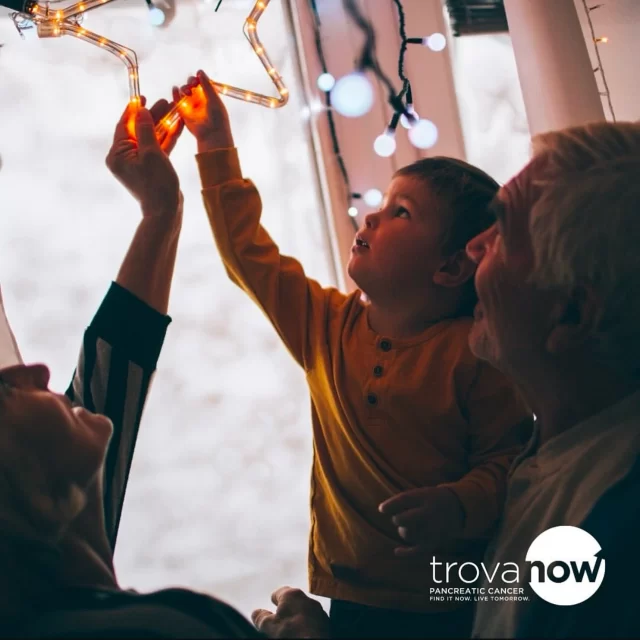The majority of people associate pancreatic cancer with older individuals. In recent years an alarming trend has emerged: Pancreatic Cancer among young adults is becoming increasingly common. The aggressive cancer is known for its subtle symptoms and late detection, which is creating the alarm of younger people.

Image credit: trovanow.com
Pancreatic Cancer in Young People: Revealing the Hidden Truth
Can young people get pancreatic cancer Yes, young people can develop pancreatic cancer, even though it has traditionally been considered a disease of the elderly. This misconception may delay the diagnosis of younger patients since neither the patient nor healthcare provider might initially be aware of the seriousness of the condition.
The pancreas has a crucial role in our body. This vital organ is responsible for digestion and the regulation of blood sugar. Malignant cells can be found in the pancreas and cause cancer. Although cases of pancreatic cancer among young adults are rare in comparison to older age groups, it is difficult to ignore the continuous increase in cases of pancreatic cancer in those who are younger than 40.
The reason for the rise in pancreatic cancer in young adults isn’t known. However, there are several factors that are believed to be behind this rise in incidence.
Changes in lifestyle and diet The past couple of decades, the shift to processed and fast foods as well as sedentary lifestyles have contributed to a rise in obesity and metabolic illnesses among the younger generation. These elements have been linked with chronic inflammation, which can increase the chance of developing pancreatic carcinoma.
Environmental Exposures: Currently young people are exposed to numerous chemicals and environmental toxins. Some of these may result in cellular changes inside the pancreas. The possibility of a prolonged exposure to pesticides industrial chemicals, and other pollutants is being studied.
Genetic Factors: Family experience with pancreatic cancer is a major aspect. Certain genetic changes, like BRCA1 and BRCA2 and BRCA2, are associated with the risk of developing this cancer. In some young adults, their risk is inherited rather than environment-related.
Greater Awareness and Diagnostics
The development of better diagnostic tools and increased awareness of pancreatic cancer among medical communities may also contribute to more cases being discovered in younger populations. The cancer that was once misdiagnosed and ignored is now being detected earlier.
Challenges Unique to Young Adults Facing Pancreatic Cancer
Pancreatic cancer is a notoriously dangerous disease and can have a unique impact on young people. If it is detected in a time that is deemed “prime” the cancer can affect careers, relationships and the long-term goals.
The emotional toll is significant for young patients, who often suffer from feelings of loneliness, being surrounded by older people within treatment settings. Stress over finances can be a contributing factor, because many teenagers may still be establishing their careers and lack robust health insurance coverage.
Early detection: Why it is more important than ever
Early detection of pancreatic carcinoma is vital to improving the outcome of patients who are young. These include:
The constant back and abdominal pain
Unexpected weight loss
Jaundice (yellowing of the skin or eyes)
Changes in appetite or digestion
Diabetes or worsening blood glucose control
These symptoms are usually not obvious and can be a sign of other, less serious conditions that can delay diagnosis. But, paying attention to your body’s condition can make a big difference.
Pancreatic Cancer in young adults
Pancreatic cancer remains a challenging condition for young adults in part because of its agressive nature. Research advances in medicine are opening up new treatment options.
The rapid advancements in targeted therapies, immunotherapies and precision medicine give hope for better survival rates. The unique needs of younger population groups could be addressed by clinical trials targeted specifically for the younger age group.
What are the options? Prevention and Help
While not all cases of pancreatic cancer are preventable, there are steps young people are able to take to decrease their risk and better manage their health:
Adopt a healthy lifestyle : Regular physical activity and a diet high in whole grains fruit, vegetables, as well as other nutrients may help decrease inflammation. Also, avoiding smoking cigarettes as well as limiting your alcohol intake are important actions.
Keep an eye on your family health history: If you’re at a high risk of pancreatic or another cancer, genetic counseling might be beneficial. Individuals with a greater genetic risk should undergo screening to catch problems earlier.
Regular checkups. It is important to have regular health checks. Also, you should be aware of any unusual symptoms.
Don’t take it on by yourself The pancreatic cancer is a type of cancer that affects children and adolescents. Numerous organizations have support services that are specifically tailored to children, and provide emotional and physical help. It is a comforting and educational to meet others who are in similar situations.
Final Conclusion: Raising Awareness and taking action
The increasing incidence of pancreatic carcinoma in young adults should prompt us to rethink our approach to this illness. Understanding the causes of pancreatic cancer, acknowledging its early warning signs as well as advocating for better prevention strategies are crucial steps to combating the problem.
For young patients and their families, the hope is found in the early detection of cancer, access to innovative treatments, and robust support networks. Even though the prospects for pancreatic cancer is overwhelming, the bravery of those fighting it and their determination inspires fresh efforts to fight it. If we are informed and proactive, we can make a difference in which pancreatic cancer will no longer have such devastating effects on the lives of teenagers.
